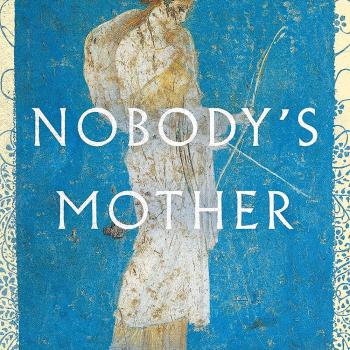This week, we’ll read narratives about Christ’s suffering and resurrection. But are we equipped to read them?
This is what I mean….we easily recognize the authority of epistles since they state ideas quite directly. On the other hand, we tend to think of stories or narratives as descriptive. So, how do narratives carry authority?
 Here are some great quotes I’ve come across while preparing to teach a Narrative Theology course. While the writer initially speaks of parables, we could just as well ask,
Here are some great quotes I’ve come across while preparing to teach a Narrative Theology course. While the writer initially speaks of parables, we could just as well ask,
“What is the authority of the passion and Easter accounts?”
Here’s a summary quote from an older article by Mark Hargreaves titled “Telling Stories: The Concept of Narrative and Biblical Authority” (Anvil 13, no. 2, 1996).
The authority of the Bible involves a challenge to see the contingent happenings of this world, of my life, as part of some universal plot. It is a challenge, or better still an invitation, to see things from God’s perspective….
Readers are issued with an invitation; they too may enter the master-narrative which structures the text. We are invited to locate ourselves within this plot and thematize our lives in accordance with this narrative. The events of my life make sense as they are placed within a configuration which features the events of God’s self-revelation in Christ. Therefore the Bible does not so much impose a vision of reality as offer readers the chance to interpret reality through the narrative (pp. 138–39).
The following unpack each thought one by one.
What then, is the authority of a parable and how does it work? The parables issue a challenge to see things from a different perspective; that is their appeal and why they continue to be so striking. They are great moments of disclosure. They reveal God’s point of view, which is shown to be so different from the human view. Here lies the element of invitation in the parables. Are we, the hearers, to share in God’s perspective? The parables are not rules we choose either to ignore or to obey; they involve us. They continue to challenge us. We can read a rule in a text-book, and never need to look at it again- but the parables call us back. We never exhaust their meaning. They continue to inspire us to see things in a new way.
The parables ‘work’ as they involve us. That is why Jesus told them and why they are so powerful.[1]
And here’s one more…
One of the implications of this reading of the Bible as master-narrative is that it incorporates the contemporary reader into the story that is being told. If it is universal history that is being recounted then the contemporary situation must feature somewhere in the plot.[2]
Finally,
What the Bible reveals, therefore, is not so much a recital of events, as a way of reading events as part of a configuration in which they appear as meaningful. The authority of the Bible lies in a pattern, a narrative within which the acts of God can be recognized and interpreted….
The most important aspect of the Bible to bring out in our preaching is its plot. We should always be prepared to tell its story. This is not the same as telling stories in our sermons; it is the systematic presentation of the narrative logic of the biblical master-narrative.[3]
These quotes are well worth thinking through as we listen to the passion and resurrection narratives this week!
[1] Hargreaves, “Telling Stories”, 134–35.
[2] Hargreaves, “Telling Stories”, 136.
[3] Hargreaves, “Telling Stories”, 137.

















